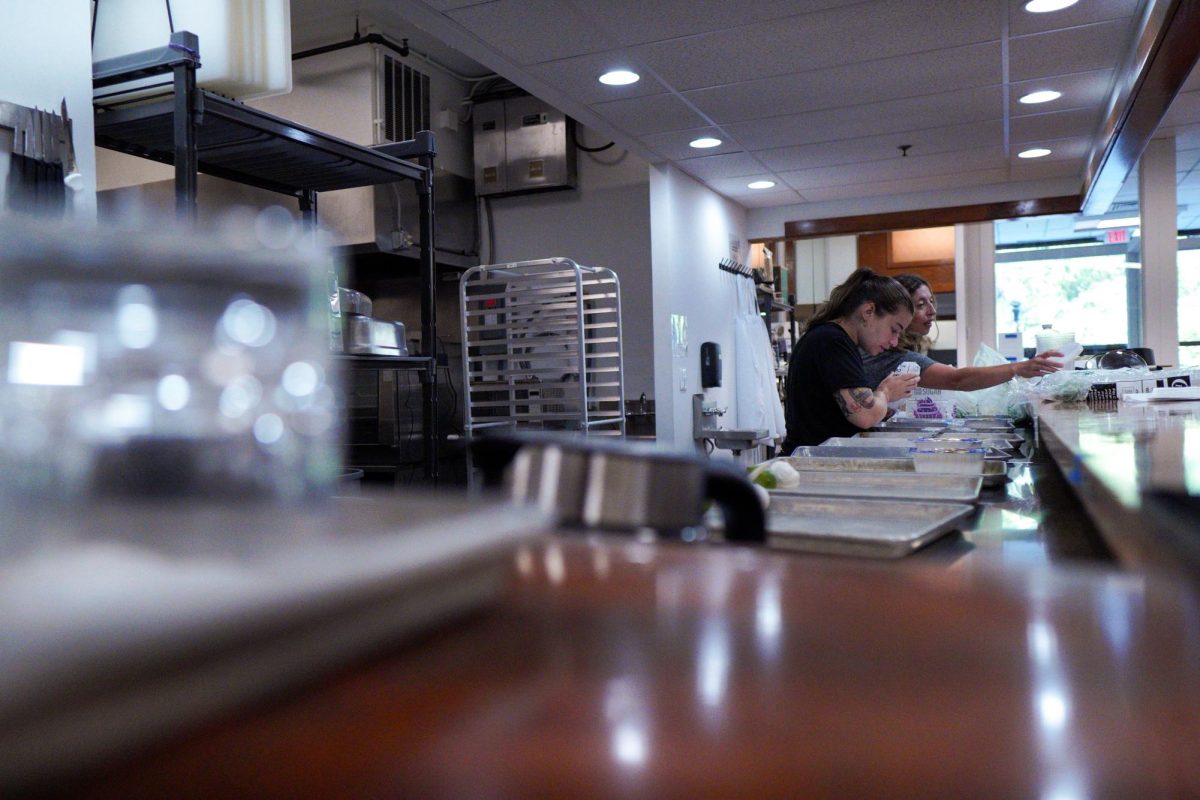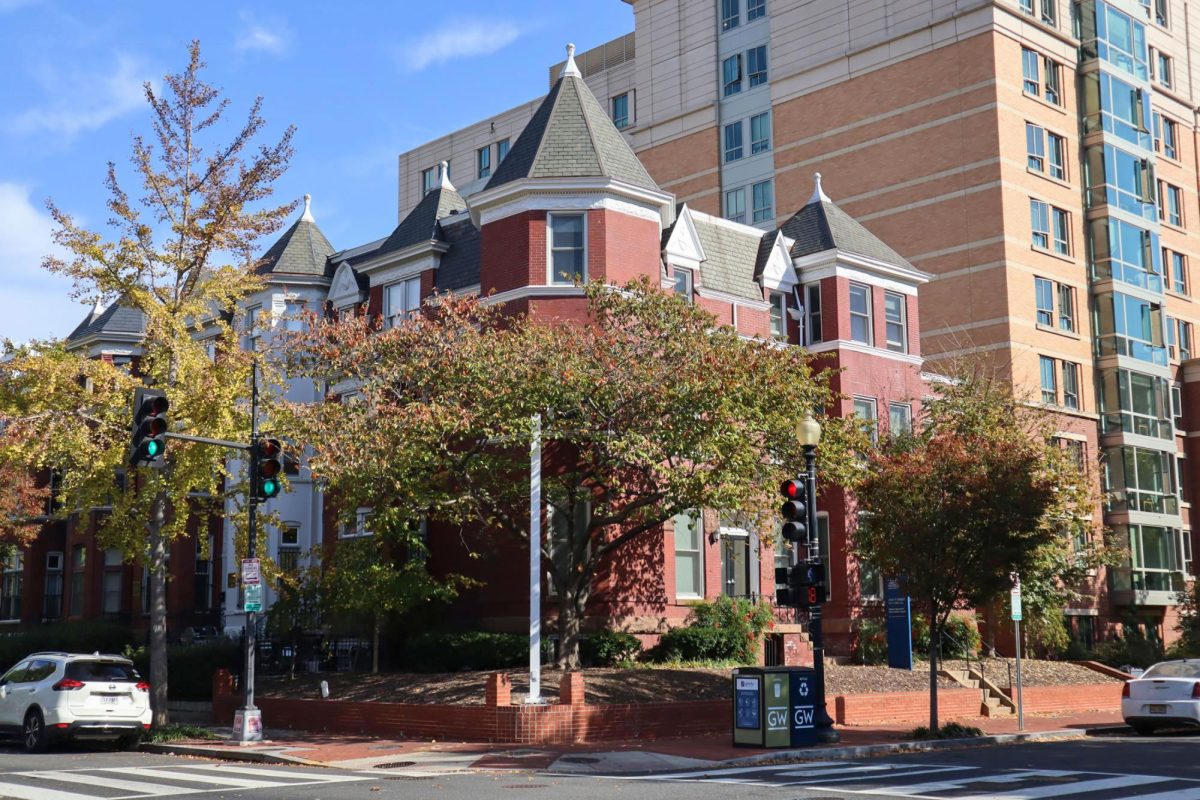Updated: Aug. 30, 2024, at 4:22 p.m.
The Global Food Institute debuted a minor in food leadership this fall after increased student interest in studying food systems.
Officials at the institute said the minor is the first academic program within the institute after a year of student demand for more food system-related courses. Tara Scully, an associate professor of biology and director of curriculum development at the institute, said the minor’s four course pillars — nutrition, policy, innovation and humanity — will allow students to better understand food-related issues, like food apartheids, where access to affordable and healthy food options is limited or nonexistent.
José Andrés, a celebrity chef, restaurateur and humanitarian, founded the institute at GW in May 2023 with goals to research and improve global food security, sustainability and distribution. The institute utilizes cross-disciplinary research and teaching to educate students on solutions to address hunger, poverty and public health while reshaping food systems, according to the institute’s website.
The minor consists of 18 credit hours and six courses, requiring that students take a course from each of the four pillars, from International Nutrition in the policy pillar to Cultural Politics of Food in France under the humanity pillar, with an additional leadership capstone experience and a required course in Introduction to Food Systems, an introductory class that examines the life cycle of food and human impact on the environment, according to the program’s website.
Scully said students don’t need to look any further than their “backyard” for historical injustices in food systems, especially in historically Black and minority communities, like those experiencing gentrification in the District. She said the minor aims to educate the next generation of individuals who want to be part of or understand the food system, from agricultural approaches to understanding the policies that have shaped food industries.
“We have so many different policies related to food in our country and internationally, so it’s really important for us to think about food in the context of how it’s being regulated,” Scully said. “We are a growing population globally, and we have the fear and danger of climate change, and we need to address those issues.”
Scully said when creating the minor, she received input from more than 50 affiliate faculty across GW. She said after holding an input session in October 2023 and receiving feedback from faculty about the minor, she worked with the institute’s team and the provost’s office to “solidify” a place for the minor within the institute.
She said students had also said that they wanted more courses like World on a Plate, a class offered since spring 2013 and previously taught by Scully in collaboration with Andrés, which discusses food history and the food industry’s connections to social and sustainability issues.
“So this kind of led to, once the institute was founded, us to think, ‘All right, what do we want to do?’ And that kind of also led to us to want to develop the undergrad first, because we had so, so much interest from that class and students taking more classes,” Scully said.
Scully said the minor is the first academic program within the institute because the undergraduate student body is the largest on campus and because the institute had existing courses that could be used to “populate” the minor, like World on a Plate. She said the institute will look into creating graduate-level courses in the future.
Mya Price, an assistant professor in the institute who teaches World on a Plate, said there is “so much passion” regarding the food justice movement. She said there is an “untapped” opportunity for students to explore, practice and develop their understanding of the systemic oppression faced by many communities, like Black and Indigenous farmers facing a lack of access to equipment and infrastructure support needed in the agriculture space.
“When we think specifically about communities of color, Native Americans, African Americans, Hispanic, Latino, there are so many disparities, particularly when we’re thinking about access to food, access to housing, access to so many social determinants that those communities are continuing to face,” Price said.
Price said she hopes students who take the minor have “immersive” experiences by hearing from outside experts in the food leadership field and learn from community service opportunities by connecting with local communities and organizations, such as Feeding America, Share Our Strength and the Food Research and Action Center.
“I think that there’s so much exploration for building together, learning together, getting out in the community and putting the learnings into practice through collaboration with other organizations in our own backyard of DC,” Price said. “I think it really will allow students to set themselves up to pursue potential career opportunities that will make the biggest and greatest impact for not only their future but then also for our nation.”
Lexi Romanowsky, a junior studying communication, said she plans to declare a minor in food leadership after having conversations with faculty and with Rebecca Fallick, an intern within the institute and a graduate student, about sustainability in the food sector.
“I love to cook, I’m from California, I’m spoiled by all the incredible produce, farmers markets there and different multicultural influence of food,” Romanowsky said. “Moving to the east coast, it’s still great, but it’s not the same, and so I was like, ‘I want to learn more about why this is the way it is.’”
Romanowsky said she is taking Italian Foodways this fall, a course on the history of Italian food culture, which fulfills a minor requirement under the humanity pillar.
“The more educated we can all be on where we’re getting our food, what we’re eating, how and why one food comes from the grocery store and one food doesn’t, all those things matter when it comes to equity and climate change and technological development and policy and everything,” Romanowsky said. “It’s just another way to look at bettering people’s lives that you wouldn’t expect.”
This post was updated to correct the following:
The Hatchet incorrectly reported that Fallick is a GW alum and faculty member within the institute, Fallick is a graduate student and intern within the institute. The Hatchet also incorrectly reported Romanowsky’s major as communications, the name of the major is communication. We regret these errors.








